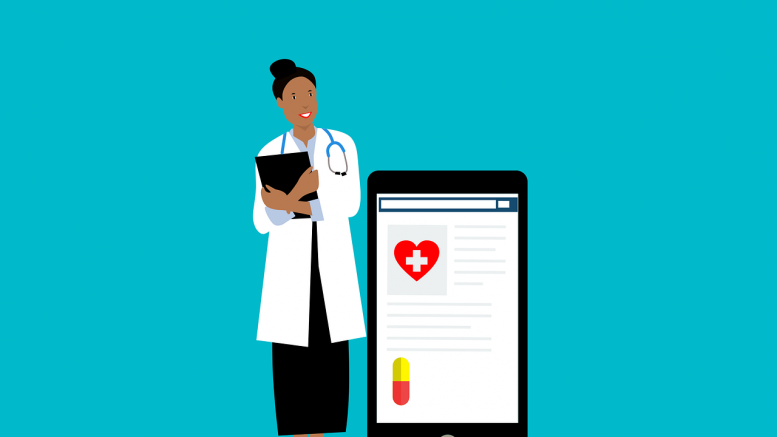It is a well-known fact that a large number of Americans require mental health care. However, studies have shown that around 35% of the country’s adult population cannot access appropriate treatment. The COVID-19 pandemic has only exacerbated this problem.
Fortunately, thanks to modern technology, people can be proactive when they require professional support and treatment. For example, you can now communicate with your healthcare provider over the internet and on your mobile device.
What are the benefits of using mental health apps?
It is vitally important that people take their mental health seriously. In fact, if left unchecked, you may begin to experience the following symptoms:
- Anxiety
- Depression
- Other psychiatric disorders
According to this article, you could also suffer from physical symptoms such as a cold, a cough, or the flu.
Nowadays, mental health apps are regarded as simple but effective healthcare tools. For instance, a short telephone call or text message can immediately connect a user to a doctor or medical center. These apps can also use the sensors on a mobile device to gather details about a user’s normal mental health status. Medical professionals will then receive these triggers which will enable them to avert any potential crises for the patient.
Some of the benefits of using mental health apps include:
- Convenience – You can obtain treatment anytime and anywhere, even at night or when you are working in the office.
- Anonymity – You can seek treatment without involving your family, friends, or colleagues.
- Encourages people to seek treatment – Compared to traditional mental health care channels, technology can help allay a patient’s reservations.
- Lower or no costs – Many of these apps are affordable and some are even free.
- Wide reach – The apps can provide mental health advice and treatment even if you live in a remote area.
- More appealing – You may favor a mental health app over traditional treatment options. In addition, you may find it easier to relay your concerns on an app rather in a face-to-face meeting.
- Service is always available and consistent – Technology allows you to seek help at any time and receive the same treatment.
Are there any disadvantages to using mental health apps?
Despite the many benefits that accrue from using a mental health app, there are still some disadvantages that developers are focusing on, including:
- How to make the app more effective – There are concerns about whether this type of technology works the same or better than traditional forms of treatment.
- Will everyone benefit? – Mental health apps may not be suitable for everyone, especially for patients with certain mental health conditions.
- What about user privacy? – As the app will be dealing with your personal data, you need a guarantee that your privacy will be protected.
- There are no industry standards – Without any measurement basis, it is difficult to distinguish the good apps from the bad apps.
- Who regulates the apps? – As mental health advice is being provided and personal data is involved, the question of regulation needs to be addressed.
What are the current trends?
App builders and healthcare professionals are combining their skills and energy to develop technologies that can address various mental health issues.
-
Self-managing apps
Self-managing apps enable users to input their details and then the software will provide feedback. For instance, you can:
- Set up medication reminders
- Develop tools for anxiety, stress management and sleep problems
- Track heart rates, breathing patterns and blood pressure
-
Cognitive skills improvement apps
People with serious mental health conditions can use these apps to improve their thinking skills.
-
Training skills apps
These apps will enable you to learn specific coping and thinking skills. For example, you can watch an educational video on anxiety management. You can then choose the best strategy for your circumstances. Furthermore, these apps can track and gauge how you apply your new skills.
-
Care support and illness management apps
Apps can now help you interact with other human beings and support groups. The software also allows you to send crucial information to your healthcare provider who will then be able to offer the appropriate therapy and guidance.
-
Passive symptom monitoring apps
Smartphones have inbuilt sensors that apps can use to monitor your:
- Behavior and movement patterns
- Social interactions (e.g., text messages and phone calls)
- Vocal tone and speed
Before long, apps will be able to analyze any changes to your behavior patterns that may signify the onset of:
- Depression
- Mania
- Psychosis
Although apps cannot fully replace a well-trained mental health professional, they can alert caregivers if you need additional attention. The primary purpose of most of these apps is to support users with mild to serious mental health problems.
As there are no industry standards to gauge the effectiveness of the various mental health apps on offer, here are some factors to bear in mind:
- Seek the opinion of a trusted mental health professional.
- Check to see if the app has recommendations for worsening symptoms or psychiatric emergencies.
- Determine whether you need a fully automated app or one that offers contact details for a professionally trained mental health care provider.
- Conduct some research into the app developers and check their credentials.
You may wish to use the app for a few days to help you determine its suitability for your particular mental health condition.
Conclusion
There are now various apps available that can provide you with mental health advice and therapy. You can also use them to monitor your progress. However, it is clear that virtual and digital care is not suitable for everyone, especially for those patients who need immediate treatment. Nevertheless, these apps do provide users with effortless and affordable care, and they also have the advantage of circumventing the perceived stigma and discrimination often associated with mental health problems.





